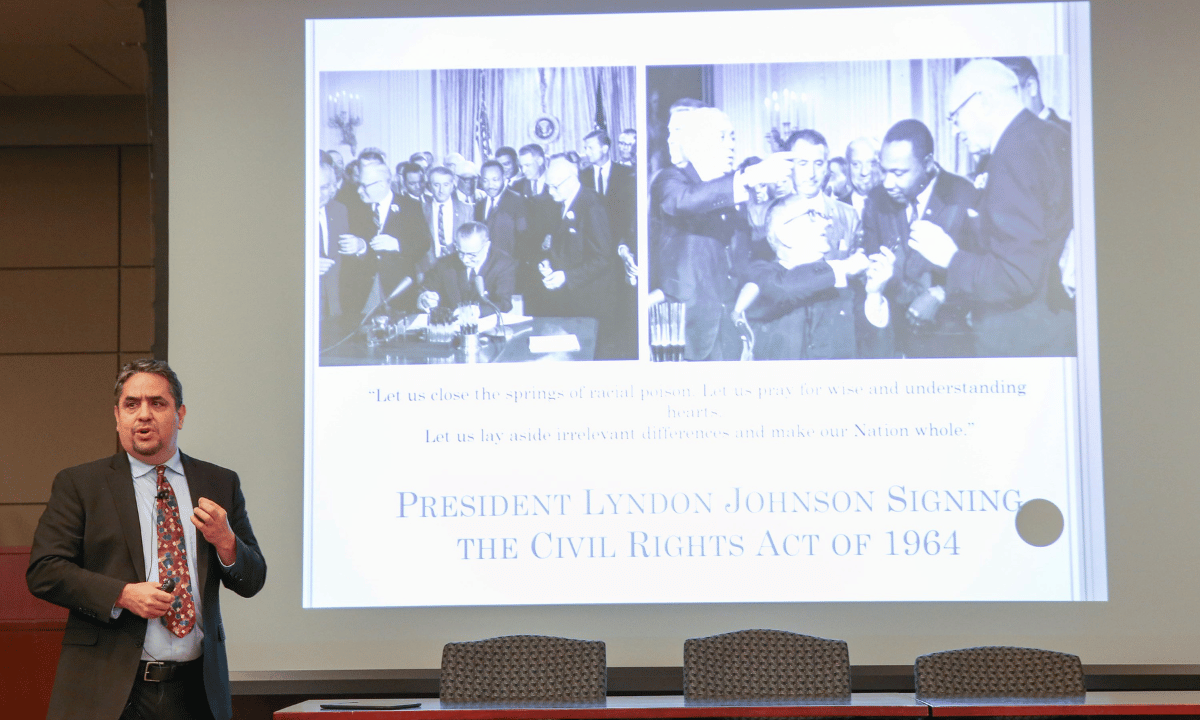
George Barrett Annual Lecture
The Barrett Lecture, along with the Social Justice Program, was named, endowed, and expanded in honor of George Barrett (VLS ’57) in August 2015. “Citizen George,” as he was widely known, was a civil rights pioneer. He represented student protesters in the Nashville sit-in movement, labor unions working to protect workers’ rights, and shareholders and consumers wronged by corporate malfeasance. He was best known for leading a decades-long and ultimately successful legal battle to desegregate Tennessee’s public institutions of higher learning.
